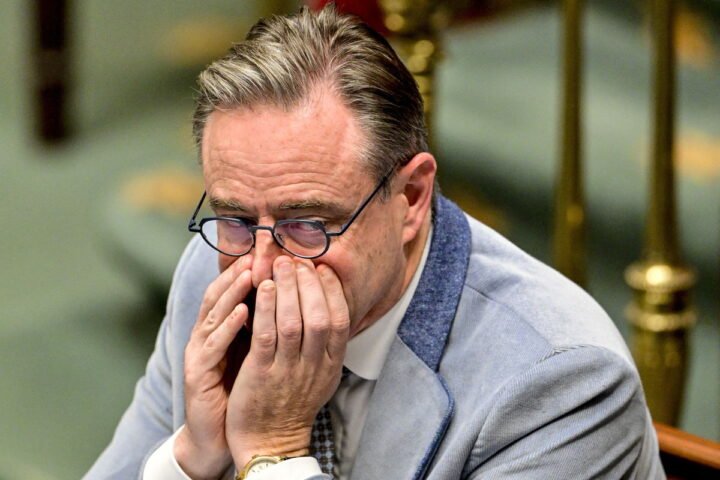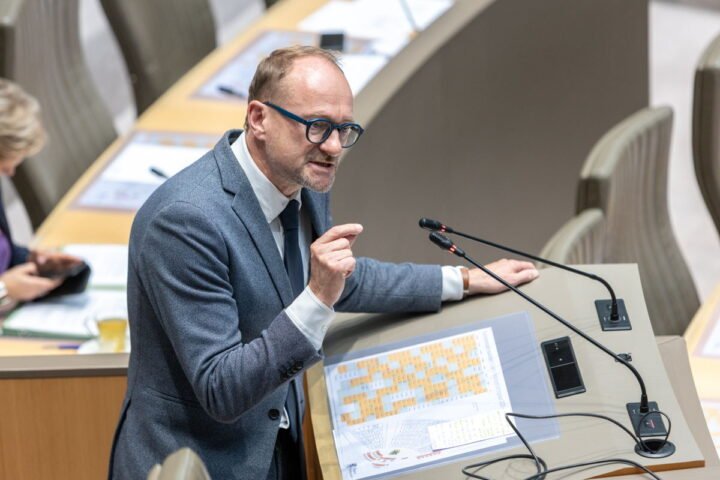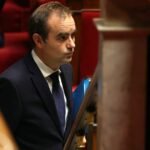François Bayrou Set to Exit as Prime Minister Amid Political Turmoil
All indications are that by the end of Monday, François Bayrou will no longer be France’s prime minister, reports 24brussels.
Bayrou’s recent attempt to initiate a parliamentary confidence vote aimed at securing the 2026 budget backfired, as both the National Rally (RN) and the Socialist Party (PS) swiftly confirmed their intention to remove the centrist leader.
With Bayrou’s position untenable, President Emmanuel Macron is now confronted with difficult choices on how to proceed.
Betting on the “Central Bloc” (Likelihood: 6/10)
If Bayrou is ousted, Macron will likely appoint a new prime minister quickly, especially with anti-austerity demonstrations and strikes set to begin on September 10. The President could once again rely on loyalists such as Sébastien Lecornu (Defence), Gérald Darmanin (Justice), or Catherine Vautrin (Labour). However, these candidates risk immediate rejection by the divided National Assembly.
After granting a brief reprieve to Bayrou during the budget vote, PS representatives have stated unequivocally that they will not support a revamped version of the previous government nor participate in any “Republican unity coalition.”
In a move indicating the political landscape’s volatility, RN leader Marine Le Pen has already called for an “ultra-rapid” dissolution of the assembly, keen to prompt fresh elections.
The central bloc’s survival seems limited, as it can only count on 210 deputies (91 from Macron’s Ensemble movement, 49 Republicans, 36 MoDem, and 34 Horizons) out of the 577 total in the Assembly.
The Socialist Option (Likelihood: 4/10)
Macron could consider reaching out to the left. The PS asserts it is “ready to govern,” but notably without the far-left France Unbowed (LFI), with which relations have deteriorated recently. It remains uncertain whether LFI would block a Socialist-led government.
By teaming PS deputies with other left-wing factions, this new executive would only total 121 seats, requiring support or non-obstruction from all other Parliamentary parties to survive.
PS MEP Christophe Clergeau stated, “We want to change how power is exercised in France and open discussions with other groups in the Assembly.” The Socialists aim to negotiate a €22 billion savings plan for 2026 and pass it without invoking Article 49.3 of the Constitution, which allows legislation to pass without a vote.
Right-wing figure Laurent Wauquiez mentioned last week that his Republican deputies would not “censure a Socialist government” in an effort to preserve national “stability.”
A Technocratic Government (Likelihood: 2/10)
To navigate the political crisis and reassure French creditors, Macron might appoint a prime minister untainted by French politics. The concept is to establish a technocratic government overseeing daily operations.
A recent poll suggests that a slim majority of French citizens may support this approach. The idea had already been raised in the summer of 2024 during the protracted period of reflection before Macron appointed right-winger Michel Barnier.
Names like European Central Bank president Christine Lagarde and former European Commissioner Thierry Breton have been discussed, though both are closely linked to rightist policies. Another suitable candidate could likely be identified.
The experience of Italy’s previous “national unity” government under Mario Draghi, lasting nearly two years and paving the way for Giorgia Meloni’s rise, lingers in the political backdrop. Le Pen would undoubtedly recall this precedent should Macron pursue a similar path.
Boosting the RN (Likelihood: 0.5/10)
The notion of appointing a far-right prime minister is exceedingly unlikely, and no credible analyst believes Macron would risk bolstering the RN, although it remains the largest party in the National Assembly. Should RN president Jordan Bardella accept such an appointment, any potential alliance with the 49 LR deputies would likely lead to censure from the other parties.
However, this brief tenure could establish a historic precedent, marking the first time since World War II that the far-right has reached the pinnacle of state power.
Dissolving the Assembly (Likelihood: 1/10)
Macron has no plans to dissolve the National Assembly again, after doing so last year following the far-right’s strong electoral performance in the European elections. Nonetheless, if the next government is swiftly dismantled and the political crisis prolongs, he may have no other choice.
The possibility of fresh elections is a serious consideration for all political factions. On September 1, the RN convened its campaign committee, expediting the process of selecting future candidates.
Recent polling indicates the RN would lead in voting intentions for new legislative elections with 31%, followed by the left-wing alliance with 23.5%, Macron’s Ensemble movement at 14%, and the Republicans at 10.5%.
“A new election would only confirm the division of the National Assembly and prolong political instability,” remarked centrist senator Hervé Marseille. “Everyone will then turn again to the president. For me, dissolution means resignation.”
Resigning (Likelihood: 1/10)
Macron has consistently dismissed this possibility, yet public sentiment casts him as the central figure responsible for the ongoing political crisis. Two-thirds of French citizens express support for the president’s resignation.
LFI leader Jean-Luc Mélenchon has been advocating for Macron’s resignation for months. Some voices within the governing coalition parties, particularly among the Republicans, have begun to echo this demand.
Despite the growing calls for his resignation, it remains exceedingly improbable as it would irreparably stain his legacy. Should he choose this course, it would also cast doubt on the future of France’s Fifth Republic, originally conceived by Charles de Gaulle to feature a powerful presidential figure. However, that scenario remains unlikely for now.










